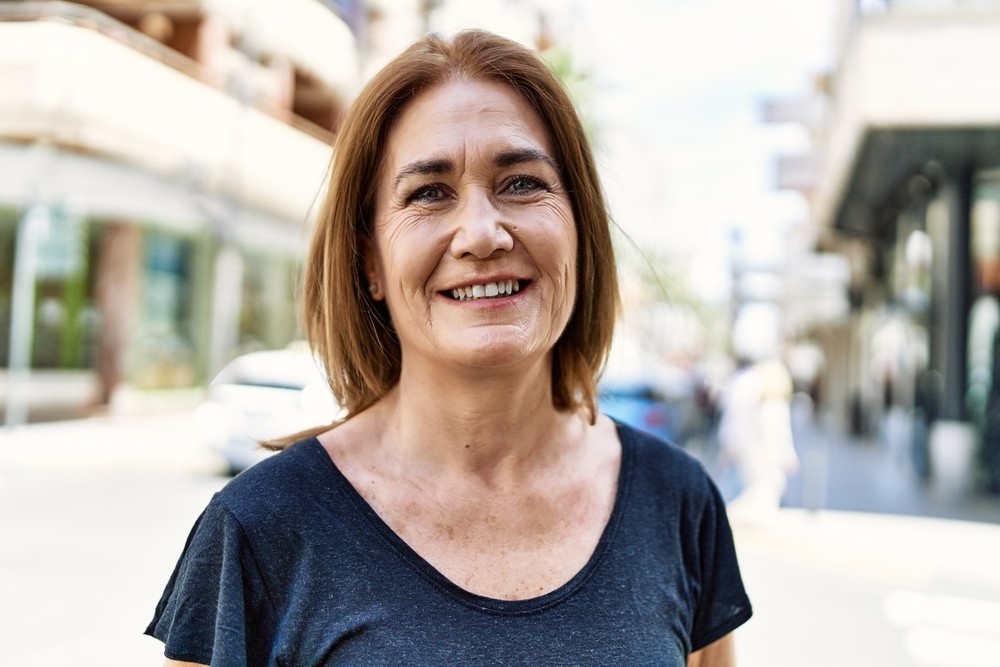What are Anxiety Disorders? Different Types of Anxiety Disorders Explained

It’s estimated that 4% of the global population suffers from anxiety disorders. You are not alone in how you’re feeling.
Anxiety is our natural and protective emotion, and it can help us respond to danger or stress. Experiencing anxiety, even at high levels, doesn’t necessarily mean you have an anxiety disorder, it might be a normal reaction to an abnormal situation.
However, when anxiety is persistent, overwhelming, or the dominant emotion in daily life, it may indicate an anxiety disorder. While other conditions like substance abuse disorders or eating disorders can involve anxiety, it’s not always the predominant feeling or primary cause.
Anxiety is experienced in different ways, you may not have a diagnosis right now, and you may not be seeking one, but it can be useful to understand the different types to consider your options if you’re going to seek professional help.
Common anxiety symptoms that can arise across all the disorders:
-
Physically feeling nervous, restless or tense.
-
Having a sense of impending danger or doom.
-
Palpitations – having an increased heart rate.
-
Hyperventilation – breathing rapidly.
-
Lightheaded and feeling faint without fainting
-
Feeling hot and sweating
-
Shaking or trembling.
-
Feeling weak or tired, leading to exhaustion.
- Trouble concentrating and a focus present worrying thoughts.

It’s important to state here that we all experience anxiety in varying degrees. Worry, intrusive thoughts and discomfort in stressful situations are normal. This is when it is helpful to see your GP or book an appointment with a Onebright therapist to seek a diagnosis, which can allow you to get the correct help to take back control of your life.

List of Anxiety Disorders:
- Generalised Anxiety Disorder
- Obsessive Compulsive Disorder – also called OCD, Pure O
- Panic Disorder, with and without Agoraphobia
- Social Anxiety Disorder
- Specific Phobias
- Health Anxiety
- Eco Anxiety
Other problems that are not classified as anxiety disorders, but anxiety is the maintaining the problem or the predominating emotion are:
- Post-traumatic stress disorder
- Most sex problems
- Low self-esteem
GAD (Generalised Anxiety Disorder)
What is GAD?: Anxiety disorders are among the most common mental health problems in the UK. About 1 in 20 people have a generalised anxiety disorder. This type of anxiety disorder can be quite challenging to diagnose due to the broad nature of the worry.
Symptoms of GAD: People with GAD frequently have an intense, excessive and persistent fear about everyday situations, often expressed in ‘waves’ of fear and emotion, making it harder to pinpoint what exactly causes these feelings. GAD is often experienced through physical and psychological responses, and so ingrained that it quietly affects daily life without being immediately recognised.
Panic
What is a panic attack?: A panic attack is a sudden feeling of intense anxiety focused on physical sensations.
Symptoms of panic disorder: Panic can make you feel like you are experiencing a life-threatening incident (often resembling a heart attack). When the fear of a panic attack is disrupting your day-to-day life, causes avoidance, or leads to unhelpful coping behaviours, it’s time to seek support.
Social Anxiety
What is social anxiety disorder?: Social anxiety disorder involves an intense, persistent fear of social or performance situations, often driven by the worry of embarrassment or judgment.
Symptoms of social anxiety, when to get help: It’s a lot more than getting nervous before a work presentation, causing overwhelming anxiety that’s out of proportion to the situation, the individual might replay scenarios long after they’ve passed.
Health Anxiety
What is health anxiety?: Health anxiety used to be known as hypochondriasis. If you have health anxiety, it means you misinterpret usual bodily symptoms and become convinced that you have a critical or life-threatening illness. People are often labelled as hypochondriacs.
When to get help for health anxiety: It’s time to seek help if you are very anxious and often scared about the state of your health. If you’re a frequent visitor to your GP or you are developing coping behaviours to deal with your feelings, such as avoiding hospitals and medical issues or obsessing about them.
OCD (Obsessive-Compulsive-Disorder)
What is OCD?: OCD is an anxiety disorder characterised by the feeling of inappropriate and distressing intrusive thoughts, images or impulses that occur against your will. The compulsions are the things we do to avoid or ‘control’ our thoughts.
Symptoms of OCD: Presented as internal behaviours (mental activities) or physical compulsions (touching, counting) to ease the anxiety and stress surrounding the thought. OCD can also include intrusive thoughts about a range of themes, including; harm, relationships, sexuality, paedophilia, religion, existentialism and contamination.
Phobias
What is a phobia? A phobia is an unreasonable fear of a situation or object. Common phobias include fear of animals such as spiders (arachnophobia), birds, insects, heights, enclosed spaces (claustrophobia), anxiety in situations perceived to be unsafe (agoraphobia) and the sight of blood or injury.
Phobia symptoms: The physiology of fear experienced with phobias can consist of palpitations, breathlessness, sweating and dizziness. Negative and anxious thoughts are common with phobias. It’s time to seek help when your fear disrupts your daily life; you avoid places or people because of it, and you’re always on guard, to the point where it affects your ability to function correctly.
The following are not strictly labelled under anxiety disorders, but Anxiety may be the dominant emotion or be maintaining the problem. These are:
PTSD (Post-traumatic stress disorder)
What is PTSD?: PTSD is a mental health condition triggered by experiencing or witnessing trauma. The development of the disorder depends on how an individual copes with the experience rather than the severity of the incident. It is often linked to military personnel, but can affect a wide range of people, as it’s situation-based.
PTSD Symptoms: PTSD and trauma symptoms can vary in intensity over time due to unannounced triggers being present or not. PTSD symptoms may include flashbacks, nightmares, severe anxiety, and intrusive thoughts related to the traumatic event, often accompanied by emotional numbness or heightened reactivity.
Sex problems
What causes sex problems?: Causes of sexual difficulties may be physical or psychological, or a combination. Even when there is a physical cause for sexual dysfunction, psychological factors often play a part in perpetuating it. Lack of intimacy has been named the number one cause of couples seeking therapy, and 60% of men avoid sex due to performance anxiety.
Low self-esteem
What is low self-esteem?: Self-esteem is your view of yourself, your perception of how others see you, and the thoughts and beliefs you have about yourself, your world and your future.
Symptoms of low self-esteem: When your perception of yourself is negative, it can lead to an overwhelming feeling of low self-worth, and you may find yourself thinking that you’re not good enough. These are not just negative, automatic thoughts that we all might have from time to time, but firm ideas about ourselves that keep on recurring.
Perinatal Anxiety
What is perinatal anxiety?: Perinatal anxiety refers to anxiety that occurs during pregnancy or in the first year after childbirth (postnatal period). It is a common but often under-recognised mental health condition that can affect both mothers and, in some cases, fathers or partners.
Symptoms of perinatal anxiety: If you find you’re having excessive or uncontrollable worry, combined with intrusive thoughts or physical symptoms such as heart palpitations, dizziness, or it is affecting your ability to parent, it’s time to seek help.
Eco Anxiety
What is eco anxiety?: ‘Eco-anxiety’ refers to the chronic fear of environmental damage or ecological disaster. This feeling is driven by the growing awareness of the environmental challenges facing our planet, such as climate change, biodiversity loss, deforestation, pollution, and more.
Symptoms of eco anxiety: People with eco-anxiety are deeply concerned about the future of the environment and can feel overwhelmed, helpless, or distressed about the current trajectory of ecological events.

Anxiety assessment (GAD-7)
The GAD-7 is used to screen for generalised anxiety and determine its severity. While it’s primarily designed for GAD, it can also provide insight into the severity of symptoms of other anxiety disorders.
The assessment consists of seven questions that ask individuals how often, during the last two weeks, they’ve been bothered by specific anxiety-related issues. These questions address symptoms like feeling nervous, having trouble relaxing, and becoming easily annoyed or irritable.
The GAD-7 is short, easy to understand, and can be quickly administered. It’s been found to have good reliability and validity.
What happens after an anxiety diagnosis has been made?
Once a diagnosis has been established, the clinician will discuss it with the patient. This discussion may include an explanation of the specific anxiety disorder, its causes, symptoms, and prognosis. It’s an opportunity for the patient to ask questions and express any concerns.
The clinician will outline treatment options tailored to the patient’s needs and the severity of the disorder. Common treatments for anxiety disorders include Cognitive Behavioural Therapy (CBT). This is a popular form of talk therapy that helps patients recognise and change negative thought patterns and behaviours that contribute to anxiety.

Online therapy for anxiety disorders
Online therapy for anxiety has become popular due to its accessibility. Individuals can access therapy from the comfort of their own home.
Given the convenience and availability of online therapy, virtual treatment for anxiety has become widely available. Anxiety disorders are treatable, yet only one-third of those suffering receive treatment.
You can meet with a qualified psychotherapist, licensed CBT therapist, or psychiatrist from the comfort and privacy of your home. If you worry about travelling, fitting therapy into your working day or meeting new people in person, talking to a therapist online can be the perfect solution.

4 Ways to Relieve Anxiety in the Moment:

Take a few deep breaths
Our natural response to anxiety often triggers physical symptoms like a racing heart and sweating. Focusing on your breath helps calm your body and brings your mind to the present, breaking the cycle of future worries common in anxiety disorders.
Label and accept the feeling
This is anxiety; it is just a feeling; it does not mean there is something to fear. It’s an emotional reaction, call it out for what it is, and it could stop you spiralling in your head. It’s not pleasant, but it won’t last forever; giving the feeling a name can disconnect it from your true self.
It can be very powerful to address your anxiety as an imposter of the mind, as opposed to it being a meaningful part of you.
Don’t fight the thoughts
Observe them without judgement, as if you dig and dig to analyse them, they will likely only grow. You can question them to a degree, asking yourself “Is this worry realistic?” “Am I thinking rationally?”
Allowing the thoughts to flow in and out will take away the need to react as if they are scary. The more you try to block them, the more your anxiety will grow.
Focus on something physical
Redirecting your body and mind onto something physical can decrease the immediate sensations felt by your anxious mind. What would you do if you weren’t anxious? Try doing that. Having something to refocus on in times of heightened anxiety can be a great asset to your toolbox when dealing with an overactive brain. An example of this could be washing the dishes, or cooking a meal, something that requires your attention to a physical task.

Choose Onebright for anxiety treatment
If you would like to seek professional help for a type of anxiety or think you may be struggling with a specific disorder, we are here to help.
Wherever you are in the world, Onebright therapists are highly trained and experienced in the evidence-based approach of Cognitive Behavioural Therapy (CBT), which is highly effective in treating anxiety disorders. CBT focuses on identifying and changing negative thought patterns and behaviours contributing to anxiety.
Our network therapists are BABCP accredited, meaning we offer the gold standard of CBT therapy available in the UK. Find out more about Cognitive Behavioural Therapy.



